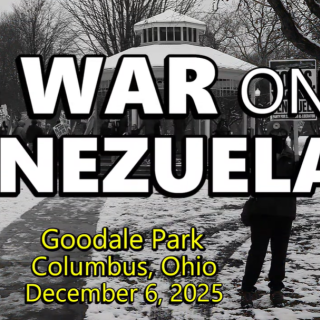An upcoming neighborhood election that was supposed to be routine has unraveled into one of the sharpest legitimacy crises in recent memory, raising the question no one at City Hall seems eager to answer: is the North Central Area Commission’s (NCAC) 2025 election even valid?
At the heart of the dispute is whether the ballots that will be circulating for the August 30 vote hold any official weight at all. As of mid-August, the Department of Neighborhoods has not confirmed whether petitions were certified, ballots set, or candidates recognized as eligible under city rules. Without that step, the “ballot” may be little more than an internal exercise — a process residents are treating as real, even if the City has not stamped it with legitimacy. The absence of any formal certification leaves the commission operating in a vacuum, raising doubts about whether the election results will be recognized by the very city that created these bodies.
A 14-page complaint filed with the city by Area Commissioner Ciera Jackson alleges that NCAC leaders bent bylaws, extended deadlines, and slow-walked records — moves she says undermine the commission’s legitimacy.
Reached by phone, Department of Neighborhoods liaison Devin Deal declined to take an official position. “I appreciate the investigative work that you’re doing,” Deal said. “At this time I don’t have any kind of statement prepared. What I can potentially do is set up something. I’ll need to speak internally about your request.”
“This is not how democracy is supposed to work,” Jackson said in a recent phone interview.
But as much as her complaint raises valid issues, it is not without its flaws. At times, it reads less like a legal brief and more like a vent session, circling the same points repeatedly: the Chair ignores bylaws, the city liaison shields her, records remain withheld. One paragraph laments failures in financial transparency; the next complains that the Chair posts updates on her personal Facebook page instead of the commission’s official page.
Even so, beneath the uneven style lies a fundamental question: Is the 2025 North Central Area Commission election that is coming up even valid at all?
To understand why this matters, you need to know what area commissions are.
Area commissions were born out of the ashes of Columbus’s urban renewal era. In the early 1970s, after neighborhoods — many of them Black — were bulldozed for highways and civic projects, residents demanded a way to reclaim power. City leaders responded by creating commissions under Code 3109 — advisory bodies meant to channel community voice into zoning, development, and spending decisions. In theory, they were designed as a democratic corrective, a neighborhood-scale balance against City Hall.
These bodies became a political compromise: residents gained a forum to check developers and city officials, while City Hall avoided giving away binding power. Commissions could not stop a highway, but they could slow a rezoning or shape how tax dollars were spent. They were meant to restore trust after institutions had destroyed it.
But fifty years later, the model faces its own legitimacy crisis. What was created to rebuild trust now risks eroding it. If elections are delayed, bylaws disputed, and petitions left uncertified, residents are left wondering whether the commissions are honoring their original purpose — or whether they have slipped into the same opaque politics they were designed to counter.
The trouble began in July. The commission’s bylaws set July 10 as the deadline for candidate petitions. According to Jackson, both Chair Tiffany White and the Vice Chair Asmara Williams missed the deadline. Instead of being disqualified, they called “emergency” meetings on July 21 and July 22 and pushed the deadline back to July 31.
That maneuver allowed incumbents to qualify. But it also raised alarms. If rules can be rewritten after they expire, critics argue, then elections are little more than suggestions.
Under City Code 3109, any bylaw change — including election procedures — must be approved by the Department of Neighborhoods. Jackson’s complaint questions whether the commission’s 2022 amendments, which modified election rules, were ever approved. If not, then the very foundation of this year’s election may be shaky.
Deal stressed that his role is procedural, not political: “Really my department and leadership need to kind of guide. I’m not prepared for a statement on the record right now.”
The Department of Neighborhoods has not confirmed whether it approved the 2022 amendments. As of late August, it has also not confirmed whether any petitions have been certified. That leaves the entire process dangling: candidates campaigning without knowing if their names are validly on the ballot.
Jackson frames her fight as one to save “democracy.” But area commissions aren’t pure democracies. They are advisory boards with elections overseen by city departments and bound by rules set in code. Their design balances community input with bureaucratic oversight.
By calling every dispute an attack on democracy, Jackson risks overreaching. During our interview, she used the term almost reflexively, applying it to late meeting starts, halted officer elections, and delayed records alike. The overuse may blunt her sharper arguments — especially since her own 2024 petition could now be questioned by some commissioners as potentially lacking enough valid signatures.
Jackson’s own eligibility is also under scrutiny. Public records obtained by the Free Press show she registered to vote in Georgia this past April while still registered in Ohio. When asked about this directly, Jackson flatly denied it: “I’m not registered to vote in Georgia. I’ve never voted in Georgia.” Pressed with documentation from the Georgia Secretary of State, she doubled down, suggesting it must have been a mistake or even fraud: “Unless somebody took my information and registered and went to vote, I’ve never voted for anything in Georgia. We have a house in Cobb County, but I never registered to vote there.”
Under the commission’s bylaws, candidates must be qualified electors in the city of Columbus. If her Georgia registration stands, it could jeopardize her standing on the commission — and add another layer of irony to her complaints about legitimacy and adherence to rules.
Still, her point stands: whether it’s democracy or governance, when rules aren’t enforced consistently, trust evaporates.
The tone of Jackson’s 14-page letter swings between the grave and the personal. One page details possible violations of the Sunshine Law and Ohio’s Public Records Act — both serious. The next complains that Tiffany White often shows up late. The result is a document that muddies its own urgency.
Still, the most compelling parts of the complaint are about transparency. Jackson says she has submitted records requests since February for meeting minutes, budgets, and disbursement logs. Months later, many remain unanswered.
If true, that could put the commission in violation of state law. Under Ohio’s Public Records Act, agencies must respond promptly. Failure can bring lawsuits and court-ordered penalties.
At the center of the dispute is Tiffany White, a longtime chair described by allies as experienced and steady, with a deep compassionate love for her community and neighbors.
Her defenders say she has kept the commission together in a neighborhood facing rapid change. Her detractors say she has centralized authority and shut down dissent.
When asked for comment, White did not immediately respond.
Ultimately, the Department of Neighborhoods will have to decide whether this election holds. Under its own code, it has the authority to review disputes, enforce bylaws, and order remedies. That could mean forcing a new election or even suspending the commission until compliance is restored.
For now, the department has offered no public comment. That silence has left commissioners and residents speculating about whether the city will intervene at all.
When pressed during the interview about whether the complaint risks being read as more personal than procedural, Jackson did not push back. She answered simply: “Yes.” That acknowledgment underscores the paradox of her filing — part whistleblower brief, part vent session.
What’s happening in North Central isn’t just a neighborhood spat. It’s a stress test of Columbus’s entire area commission system — a structure born out of distrust, now showing its own cracks.
If the rules can be bent without oversight, then these bodies risk becoming fiefdoms instead of forums. If complaints collapse under their own pettiness, then serious issues may go unaddressed. And if residents lose faith in the validity of elections, then the very legitimacy of the commissions erodes.
For a city where development battles are fierce and neighborhoods are rapidly changing, that legitimacy matters.
Whether or not this year’s NCAC candidates are officially certified, the election has already exposed a deeper problem: the fragility of grassroots governance when oversight falters and trust breaks down.
As Deal put it, the city isn’t rushing to judgment: “We gotta take some time, go through proper channels. I need to go through my leadership before I can give you something on the record.”



